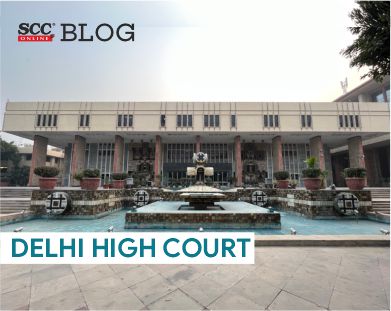Delhi High Court: In a case filed seeking termination of pregnancy under the Medical Termination of Pregnancy Act, 1971 (MTP Act, 1971) and to form a board comprising not less than two registered medical practitioners and submitting an opinion qua the medical termination of pregnancy of the Petitioner due to obtaining confirmations from three different diagnostic centres/hospitals regarding evidence of cerebral abnormality of the foetus, Prathiba M Singh, J., permitted the medical termination of pregnancy considering that there is considerable doubt and risk involved in the unborn child’s chances of leading a dignified and self-sustaining life, based upon the medical evidence and reports.
In the present case, the Court has received the opinion of the Medical Board of LNJP Hospital stating that the termination ought to be ‘Denied’. However, the abnormalities have been diagnosed and mentioned in the report and it is based on the said abnormalities revealed in the foetus that the Court is called upon to determine whether the abnormality, constitutes “substantial foetal abnormality” under Section 3(2B) of MTP Act, 1971, or not and for the said purpose. The Court can only rely upon the various test reports which have been placed on record by the Petitioner, and the diagnosis of the Medical Board.
The Court noted that the presence of foetal abnormalities and a reading of Section 3(2B) of the MTP Act, 1971 shows that the statute requires “substantial foetal abnormalities” and not mere foetal abnormalities, for the medical termination of pregnancy beyond twenty / twenty-four weeks.
The Court further observed that the two conditions that need to be highlighted in the present case are-
i. unilateral cerebral ventriculomegaly and dilation of the left lateral ventricle of the brain;
ii. Foetus exhibits Partial corpus callosum agenesis – i.e., Agenesis of the Corpus Callosum;
The Court opined that the above condition requires surgery, and the extent of handicap is unpredictable as per the Medical Board’s opinion. Such conditions constitute a rare disorder that is present at birth in a very small percentage of pregnancies and the Medical Board’s opinion is to ‘Deny’ the termination, but the Court must take an overall view of the matter.
The Court must weigh the risks that are involved in such medical conditions and the unpredictability of the same qua the post-birth life. As per Section 3(2B) MTP Act, 1971, the termination of pregnancy beyond the twenty-four weeks period must be necessitated by the diagnosis of “substantial foetal abnormalities” by the Medical Board.
Thus, it was concluded that the ultrasound reports, diagnostic reports, and the Medical Board’s diagnosis of the dilation of the left lateral ventricle of the brain of the foetus which may likely require surgery immediately after the birth, Corpus Callosum Agenesis reveal the unpredictability of the quality of life, as also, the degree of handicap, and would constitute “substantial foetal abnormalities”
The Court remarked that the Medical Board, in the present case, unfortunately, has not been able to predict or give a categorical opinion as to the degree of handicap or as to the quality of life of the child after birth, with certainty. However, as a mother, the petitioner has weighed the same with unpredictability and risks.
The Court permitted the termination of pregnancy and held that the ultimate decision in such cases ought to recognize the choice of the mother, as also, as the possibility of a dignified life for the unborn child. Keeping in mind these two factors, the Court concludes that the mother’s choice is being made in a completely bona fide manner.
The Court further enlisted certain factors on which the opinion should be given by the Board/s to whom such cases are referred:
i. Medical condition of the foetus – While giving the scientific or medical terminologies, some explanation in lay-person terms as to the effect of such condition ought to be mentioned. Alternatively, medical literature could be annexed with the Opinion;
ii. Medical condition of the woman – The Medical Board ought to interact with the woman in a congenial manner and assess her physical and mental condition. The same ought to be mentioned in the Opinion.
iii. Risks involved for the woman – The Opinion should briefly mention as to what are the risks for the woman in either continuing the pregnancy or undergoing termination.
iv. Any other factors to be considered – The Opinion should bring to the notice of the Court any other relevant factor/s which may have a bearing on the case for taking the decision relating to termination of the pregnancy.
[X v. GNCTD, 2022 SCC OnLine Del 4274, decided on 06-12-2022]
Advocates who appeared in this case :
Mr. Anwesh Madhukar, Mr. Yaseen Siddiqui, Mr. Pranjal Shekhar and Ms. Prachi Nirwan, Advocates. with Petitioner with her husband in-person virtually;
Mr. Anwesh Madhukar, Mr. Yaseen Siddiqui, Mr. Pranjal Shekhar and Ms. Prachi Nirwan, Advocates. with Petitioner with her husband in-person virtually.
*Arunima Bose, Editorial Assistant has reported this brief.







